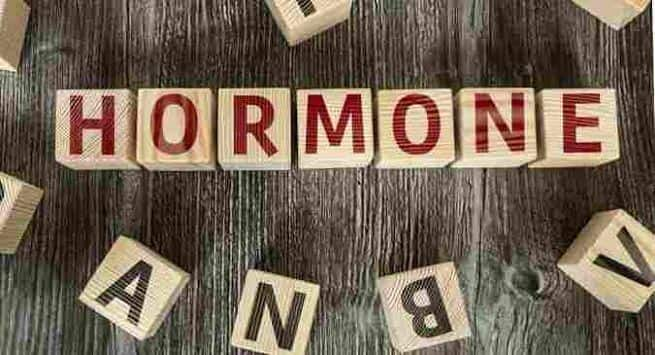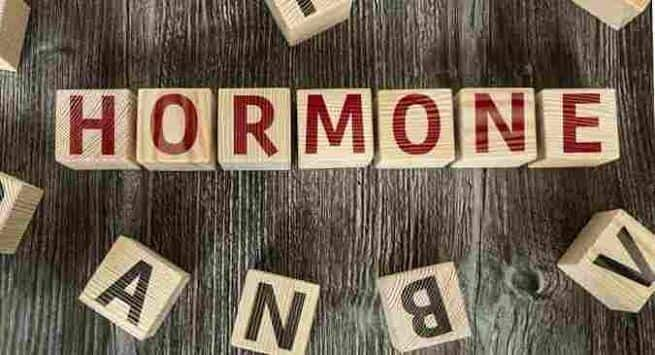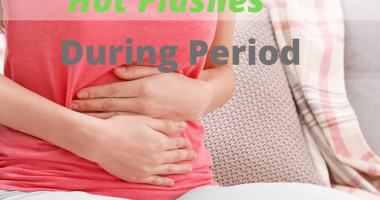Causes of hormonal imbalance in women –  Hormonal change All throughout our life our hormones fluctuate causing a list of physiological changes. Hormone fluctuation especially during pregnancy and childbirth can considerably contribute to hair loss. Thyroid imbalances, menopause, etc. are other few possible reasons for the increased hair fall.
Hormonal change All throughout our life our hormones fluctuate causing a list of physiological changes. Hormone fluctuation especially during pregnancy and childbirth can considerably contribute to hair loss. Thyroid imbalances, menopause, etc. are other few possible reasons for the increased hair fall.
Did you know? Hormones are chemical messengers directly secreted into one’s blood and carried to other body organs to perform their duties. There are various types of hormones. They are helpful in one’s growth, food metabolism, cognitive function, mood, sexual function, and reproductive development some help maintains correct body temperature and regulate our thirst. Sadly, the majority of women experience hormonal imbalances.
So That Is The Hormonal Imbalance?
Hormonal imbalance is seen when there is too much or too little hormone in one’s bloodstream. Our hormones have a massive part in the regular functioning of our body. But, Dr Payal Narang, Consultant Obstetrician & Gynaecologist, Motherhood Hospital Lullanagar, explains how imbalances of hormones cause various issues that can steal one’s peace of mind.
Causes Of Hormonal Imbalance
The causes of hormonal imbalance are stress, nutritional deficiencies, underactive or overactive thyroid gland, pregnancy, menopause, polycystic ovarian syndrome (PCOS), primary ovarian insufficiency (POI), obesity, hormone therapy, tumour, injury, and taking cancer treatment like the chemotherapy.
Symptoms Of Hormonal Imbalance
The symptoms of hormonal imbalance are sweating, unintentional weight gain or weight loss, lack of sleep, dry skin, abnormal changes in blood pressure, weak bones, frustration, irritability, depression, anxiety, thin hair, frequent thirst, bloating, changes in appetite, low sex drive, vaginal dryness, painful sex, headaches, blurry vision, night sweats, and puffy face.
The Health Risks Due To Hormonal Imbalance
Menstruation
- Estrogen is one of the leading female hormones essential for reproductive and sexual development, along with puberty, menstruation, pregnancy, and menopause.
- Low estrogen levels will take a toll on the brain, cardiovascular system, hair, musculoskeletal system, skin, and urinary tract.
- Progesterone hormone is seen after ovulation and helps with pregnancy.
- Testosterone comes from adrenal glands and one’s ovaries and plays a vital part in sexual desire, regulating menstruation and bone health.
Insomnia
- Hormonal imbalance due to menopause will invite insomnia, and you won’t be able to get a sound sleep at night.
- Low estrogen levels cause sensitive skin during periods, and one will notice worrisome symptoms such as acne, sagging, and wrinkling of the skin.
- Estrogen and progesterone will invite digestion issues causing diarrhoea, nausea, or stomach pain.
Mood Swings
- Mood swings are also common owing to hormonal imbalance in women.
- For example, abnormal estrogen and testosterone levels can lead to lower libido in women.
- Likewise, low estrogen levels during perimenopause and menopause can lead to bone loss.
This Is How You Can Manage Hormonal Imbalance
Medication, birth control, and taking estrogen therapy (HRT). Along with this, you need to eat a well-balanced diet. Avoid sugary foods and artificial sweeteners as they cause insulin resistance. Avoid stress and meditation or yoga, exercise daily, maintain optimum weight, get enough sleep, bid farewell to junk, processed and canned food, and sleep well.








